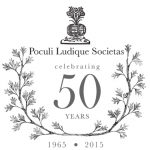The literary and especially the theatrical scene in Flanders in the sixteenth century was dominated by the so-called chambers of rhetoric (rederijkerskamers), such as the Drie Santinnen (Three Female Saints) in Bruges. The rhetoricians (rederijkers) who made up these chambers were, on the whole, middle-class businessmen who evidently had a proclivity for composing and performing poetry and drama. Cornelis Everaert was one such rhetorician, and indeed, a very active one as over thirty plays by him have survived. He was a member of the Bruges chamber Drie Santinnen as well as their competitors, the Bruges chamber De Heleghe Geest (The Holy Spirit); by profession he was a dyer and fuller and he also acted as secretary for various institutions from time to time. His first play is dated 1509 and his last 1538, though the author seems to have lived until 1556. Unusually, he made an autograph of (perhaps all) his plays, in which he tends to comment on performance circumstances. In the case of Esbatement van twesen (The Play of Being; 1512) for instance, he notes proudly that it won the first prize – a silver tray – at a competition in Nieuwpoort. In the case of another play, the author laments that it failed to get the first prize because someone messed up the performance. Everaert lived at a time of considerable political friction (the increasingly foreign rule of the Low Countries), economic upset (the decline of Bruges which had been one of the most important and wealthy port towns), and religious upheaval (the Reformation) and this is to a degree reflected in his work. Although many of his plays are comic and/or deal with general issues such as greed, some of them touch upon very specific contemporary events, such as the battle of Pavia in 1525. And two of his plays were so contentious that they were censored: Tspel van dOnghelycke Munte (The Play of the Debased Coin), for example, which was critical of contemporary economical policies, was banned in 1530.
— Charlotte Steenbrugge

